STEM Labyrinth
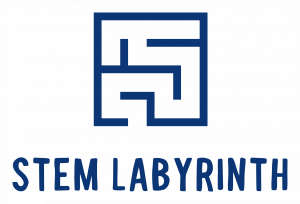
STEM – Labyrinth (STEM Labyrinth as a method for increasing the level of knowledge through problem solving) Project Duration: 2020 – 2022 The world has been changing rapidly, and the knowledge and skills acquired today are not foreseen to be sufficient while preparing our students for life. It is emphasized that the 21st century skills, such as digital skills, critical thinking, cooperation, problem solving, innovative and analytical thinking, are more than required. In accordance with the priorities set by the European Commission, the STEM Labyrinth project is aimed to develop the so called “STEM skills” in students (Science, Technology, Engineering and Math), which can be considered basic skills and are, for this, the main focus of our project. With the project we would introduce a new and innovative approach in STEM education addressing Innovative practices in a digital era as priority. Project intends to develop an innovative STEM Labyrinth Method and design Mobile App, to create a transformative educational experience for high school students. The real-world problem scenarios will empower students for higher-order thinking and problem solving, preparing them to be competent and ready for their careers in the fast moving digital world. The Consortium consisting of seven partner countries will develop four intellectual outputs: 1. Toolkit promoting STEM Education 2. Mobile Application STEM Labyrinth 3. Guidelines for STEM Educators 4. Training course for STEM Labyrinth method The main output Mobile App would represent a virtual simulator of real-life problems asking learners to tackle a real-world problem and by doing that to gain knowledge through problem solving. Thus App STEM Labyrinth will put the students in the centre of a labyrinth and it will challenge them to begin solving problems and eventually reaching the solution. Through providing help at several stages, the app intends to increase the motivation and the students’ understanding of the problem. Apps will provide clues and paths towards solving the defined problems and a step-to-step approach that will grab the attention of students and inspire them to get excited about STEM. The project will contribute to the process of teaching STEM by giving useful tools for the teachers to implement new teaching methods and materials that will encourage STEM teaching and empower youth and students to be problem solvers. It will also develop course plans and teacher training courses for STEM, targeting teachers at primary, lower secondary and upper secondary level within the area of STEM in schools’ European dimension by promoting closer relationships between teachers, schools and relevant stakeholders and policymakers. Facebook | Website | Toolkit | Download APP (Android) | Newsletter 1 | Newsletter 2 | Newsletter 3 | Newsletter 4 The project is financed by Erasmus+ KA2: 2020-1-PT01-KA201-078645
EnForSe
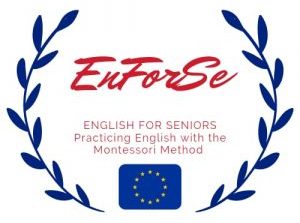
EnForSe – English for seniors, practicing English with the Montessori Method Project Duration: 2020 – 2022 A large portion of the population is over 65, still healthy and life expectancy has lengthened and the quality of life has improved. These Seniors are still very active in supporting their children, help raising their grandchildren and would still like to learn. An important pillar of society, how effective they are, and some need to feel involved in the education path again, learning processes and social events. Our challenge is: Is it possible to teach the elderly? Can the elderly actually learn? And learn a second language? Our long term aim is to build bridges through aged persons in different European countries. The crucial point is to experiment with English, using it for communication and not just teach in the traditional theoretical way. Using the Montessori method to teach the elderly by creating places where you learn English, experiment with English, and participate socially in European culture and at the same time: the EnForSe Corners! During the activities, these EnForSe Corners will give opportunities for meetings between Seniors who live in different countries and who use English to communicate. Through this project, we will introduce to the Montessori Method a sort number of teachers and adult trainers in the field of language learning for adults. Some of the target groups are retired workers in general, unemployed seniors that have never been able to graduate but wish to learn and restart their studies or simply seniors that need company. Target: 10/15 seniors from each partner country will be involved in English lessons and EnForSe activities, the target of the total amount; 90 seniors, over 65. 18 English teacher trained in Montessori inspired methods for seniors. EnForSe practical guidelines to teach English to seniors. Outputs: 1 EnForSe special room created for sustainability and dissemination 6 EnForSe Corners created 6 EnForSe Multiplier Day Events implemented Partners: Poland, Italy, Spain, Turkey, Germany & Finland. Facebook | Website The project is financed by Erasmus+ KA2: 2020-1-IT02-KA204-079745
IndyLan
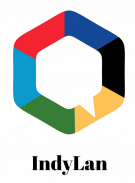
Project Duration: 2019 – 2021 Our project, IndyLan, will develop an educational tool designed specifically for users to learn not only some of Europe’s endangered languages but also more about the cultures of the people who speak these languages. The tool constitutes a gamified language-learning solution in the form of a mobile application. Smartphones have become a popular educational tool and the number of the smartphone and tablet users of all ages is constantly growing in the EU. The IndyLan application will help speakers of English, Spanish, Norwegian, Swedish and Finnish to learn Gaelic (designated as ‘definitely endangered’), Scots (‘severely endangered’), Cornish (‘critically endangered’), Basque (‘severely endangered’), Galician (a minority language) and Saami (‘severely endangered’). The application is building on a previous project, Moving Languages, with the key difference that IndyLan will produce one application for all languages, and not multiple language-specific applications as Moving Languages did. IndyLan will contain around 4,000 vocabulary items (both terms and expressions) in about 100 categories. The modes that will be available in the application are: Vocabulary; Phrases; Dialogues; Grammar; Culture; Test. The vocabulary can be practised in several study modes, such as (the list below is indicative): 1. Flashcards for image+text practice 2. Choose the image according to the word 3. Select translation 4. Multiple choice with images 5. Multiple choice with words 6. Matching 7. Choose the letters 8. Write the missing word 9. Listening comprehension (with audio files) Most of the items will be illustrated for easy concept recognition. There will be audio for all vocabulary, phrases, dialogues etc. The app will also include a dedicated Culture tab with texts, music and images, where users will be able to learn more about the heritage and culture of the people speaking the selected endangered languages. The IndyLan application will be available for download globally for free in both iOS and Android. Like all language-learning apps, IndyLan is complementary to other language- and culture courses and can be considered to be part of self-study material. Our vision is for the IndyLan app to contribute to endangered language learning and revitalisation so that these languages remain alive and relevant in contemporary societies and economies. Facebook | Website | Newsletter 1 | Newsletter 2 | Newsletter 5 | LiveBinder | YouTube (Swedish) | YouTube (Finnish) The project is financed by Erasmus+ KA2: 2019-1-UK01-KA204-061875
Mental Health+
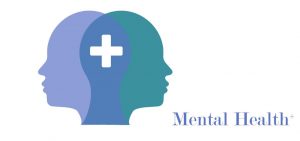
Project Duration: 2019 – 2021 MH+ will develop governance and benchmarking tools for use by VET professionals in order to understand and improve their current approach to mental health issues. Consequently, MH+ aims to develop a complementary ‘top down’ approach which allows VET institutions to fully understand how mental health and well-being fit into their services, and so develop responses that are inclusive of a range of learners. This will be achieved by developing a series of governance and benchmarking resources that underpin a structured and supported approach to quality service design. Partners will first develop an MH+ Charter which will set out the minimum requirements an organization needs to conform to in order to consider its provisions inclusive of learners with mental health issues. This will be achieved through desk and field research into current best practices and emergent trends across Europe. The Charter will then be used as the basis for an interactive digital benchmarking tool that VET practitioners will be able to use to assess their current services and then track their improvement. Each organisation’s score against the Charter will form a ‘Mental Health Footprint’, with those organizations scoring highly awarded an MH+ quality mark. The final project output has been designed with sustainability and long-term impact in mind, as partners will produce a skills profile and resources for the development of a Mental Health Champion role. This will help MH+ achieve a wide impact on the governance structures found across VET institutions, helping these organizations to become more welcoming and inclusive for a range of young people with mental health issues. This will see an improvement in the numbers of students from these groups engaging with VET services, helping to address the current retention and drop out rates in VET. E-book | Charter | Facebook | Newsletter The project is financed by Erasmus+ KA2: 2019-1-UK01-KA202-062036
ASSESS
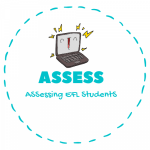
Project Duration: 2019 – 2021 The project ASSESS aims to define innovative methods and tools for the assessment of EFL learners. Its main goal is to bring new approaches to assessment and contribute to the development of evaluation consciousness. It also wants to support the restoration of the assessment system and share good practices among European countries. By creating an international network, schools and teachers can learn from one another, share valuable knowledge and insights and are better equipped. This strategic partnership offers a bridging innovative activity with concrete outcomes in Europe. These aspects contribute to many key objectives of The Europe 2020 strategy such as “promoting entrepreneurship, creativity, and innovativeness at all levels of education”, “Promoting the acquisition of skills and competences “ and “adopting a holistic approach to language teaching and learning.” The Project will be implemented with a total of 6 partners from 6 countries: Portugal, Turkey, Finland, Greece, Germany, and Spain. Some of the chosen partner countries are known well with their language education in the schools. The partnership will create an online exam creator where EFL teachers can share the best methods and techniques in the assessment of young learners. Facebook | Website | Exam Creator | Newsletter 1 | Newsletter 2 | Newsletter 3 | YouTube The project is financed by Erasmus+ KA2: 2019-1-PT01-KA201-061275
IntegrAction

Project duration: 2019 – 2021 “IntegrAction – Action for socio-economic integration of refugees and asylum seekers” project is elaborated in order to promote the social and economic inclusion of the refugees and asylum seekers in the local context of reception. The general objective of the IntegrAction project is to contribute to the social and economic inclusion of migrants, refugees and asylum seekers in the local context of reception. The Specific Objectives are: To improve the linguistic competences of refugees and asylum seekers in order to promote the process of socio-economic integration. To increase the employability of immigrants through the strengthening of socio-professional and entrepreneurship competencies aimed at job placement, active job search and self-employment. To develop social and intercultural competences in immigrants stimulating their active participation in the local communities through mutual understanding initiatives. The intellectual Outputs within the project are connected with the main barriers faced by refugees and asylum seekers: host country language, access to the job market, social acceptation by local communities of the host country. The IO1 – “Tool4aLLs – Toolkit on digital tools for Literacy and Language proficiency”; The IO2 “Immigrants in the Labour Market: a manual to facilitate entrepreneurship and business start-up”; The IO3 “Webdoc – Migrant Diaries” Facebook | Website | LiveBinder | Tools4alls | Newsletter | Handbook for Entrepreneurs | YouTube (Finnish) | YouTube (English) The project is financed by Erasmus+ 2019-1-IT02-KA204-063302
GREAT
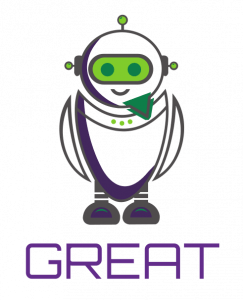
Project duration: 2019 – 2021 The GREAT project focuses on learning, teaching and using new technologies and being adequate about using the digital competences. It cannot be denied that it is compulsory to keep up with the technology. In order to be able to use it in a positive way, first teachers should include the usage of technology in their yearly plans and curriculum. Technology is playing a critical role in how curricula are being developed and implemented. This is reflected in a huge movement in many countries to create STEM (science, technology, engineering, and mathematics) curricula to prepare students for lifelong learning and the demands of the future. Through this project, the children who have difficulties to learn many abstract concepts will become familiar with the contents of new technologies thanks to the coding and robotics. The children will have a better understanding and will have the ability to think in three dimensions. Reading books or just studying is not enough for us to reach information. Because even in a second, a new invention emerges and we have countless new automatic vehicles. The world of science brings technology to today’s inventions and brings the products we use with coding and robotics to the points we cannot imagine. All of them come from the perfect harmony of coding and robotics. Therefore, starting from the early ages, coding and solving the robotic language, they will continue their lives without confusion as they will understand the content of the new inventions which they will encounter during their lives. Primary school students will be introduced to coding through Block-Based Coding through robotics, which involves dragging and matching different “blocks” of instructions. Secondary school students will learn Python programming and utilize Makeblock robots and construct advanced projects. Professional Development is the key to success, thus teachers will be equipped with key competencies and skills which will assist them to succeed in their professional or academic careers. Facebook | LiveBinder The project is financed by Erasmus+ 2019-1-UK01-KA201-062030
Lango
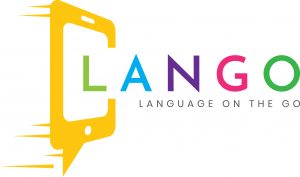
Project duration 2019-2021 LANGO – Language on the go Project LANGO is the development of a mobile phone app and web portal working in tandem. The project aims to provide European language education for refugees and new-comers, making Europe their new home. LANGO is an ERASMUS+ funded project and involves five partner organizations: The Netherlands, Belgium, Turkey, Greece, and Finland. The languages of these countries (except Finland) represent the target languages on the app. This project is a continuation of the previous project Moving Languages. There will be many refugee languages common to those of the arrivals in each of the partnered countries. These will include common mother tongues such as Arabic and Farsi, as well as some minority dialects such as the three dialects of Kurdish, Sorani, Bardini, and Kurmanji. Therefore, all the menu items and audio files contained on the app in the target language can be translated into the mother tongue of the learner. This feature will enable learners from a zero foreign language background to begin educating themselves on a free, easy, and fun to use mobile app. The web-portal will contain printable PDF study material and will play host to the animated Daily Life series involving 10 x two-minute episodes in each of the partnering languages. These episodes will also include follow up exercises to support a better understanding of the content and at the same time, teach critical cultural differences. Project LANGO is an innovative and creative way to engage refugees and new-comers in their integration process in a less formal way. After all, learning should be fun. Facebook | LiveBinder | YouTube The project is financed by Erasmus+ 2019-1-NL01-KA204-060376
City Quiz
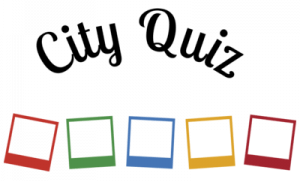
Project duration: 2019 – 2021 The main aim of the City Quiz & Walk project is to enhance integration and cultural education of migrants, immigrants, expats, and students using an innovative city quiz mobile application. According to the research conducted at the preparatory part of this project application, the mobile app created for this project will be a unique digital solution both for the foreigners residing in partner countries as well as the professionals working with immigrants and refugees. In this project, we will deliver 5 versions of the mobile application for city quizzes with the main focus on the partner’s cultures in their capital cities. The partner countries are Finland, France, Greece, Portugal and Lithuania. This thematic app will contain illustrated and text questions that will help the user get a better understanding of the culture, traditions and key figures in the partner cultures. In our mobile app we will be offering a possibility to explore the culture and history both by solving the online quizzes in the mobile app and (when the app user is present at the quiz location) by following the map of the area to be able to solve the quizzes and familiarize themselves with the places on which the questions are based. Each version of the mobile application will be available in 2 languages English as well as the partner language. After the project completion, similar mobile apps can be created for other cities. Facebook | Website | Newsletter | YouTube The project is financed by Erasmus+ KA2: 2019-1-FI01-KA204-060734
FEES
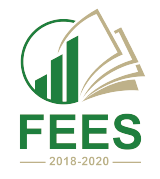
Project duration: 2018 – 2020 This project, Financial Education for Educators aims to build capacity in organisations providing financial education by empowering the organisations and their staff to deliver high quality training in financial and economic literacy. Within this broad aim, the main objectives are to: Provide a comparative analysis of the preparation of financial educators in Europe, North America and Australia to inform the future training and preparation of financial educators Review existing curriculum and competence frameworks in finance, and formulate a financial and economic competence framework for educators Improve the financial and economic competence of at least 14 adult educators to deliver financial education to adults Provide opportunities for adult educators to improve their competence to deliver financial training though an e-course in financial and economic literacy. Create a course that would confer “certified financial educator” status to that completing it successfully. The project is aligned to: European 20-20 strategy and New Skills Agenda – within developing digital competence is a priority Erasmus + objectives of improving the level of key competences and skills, with regard to their relevance for the labour market and their contribution to a cohesive society through increased opportunities for learning mobility Fostering quality improvements, innovation excellence and enhancing transnational cooperation; and It supports KA2 objectives by Extending and developing educators’ competences, particularly in the effective teaching of literacy, numeracy and digital skills to low-skilled or low-qualified adults, including through the effective use of ICT Improving the high quality learning opportunities through innovative means including non-formal education Improving the key competences of adult learners, especially those that are disadvantaged Facebook The project is financed by Erasmus+ KA2: 2018-1-UK01-KA204-048179
